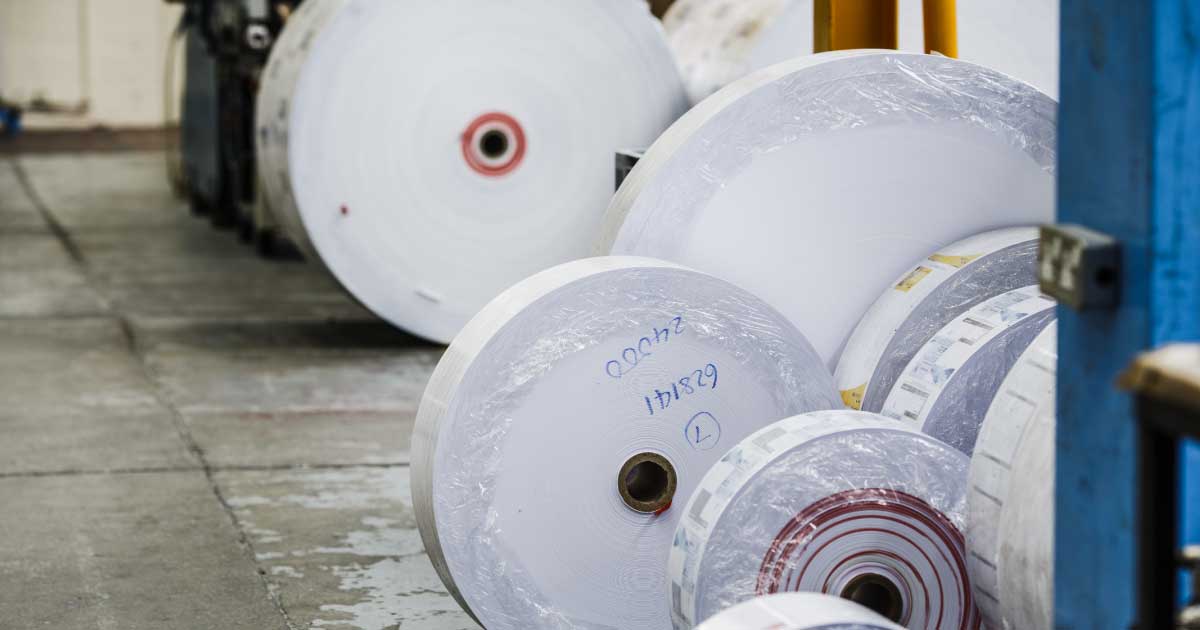It’s no secret that the world is facing a climate crisis. The impact of this is reflected in everyone’s lives, in many ways.
When it comes to business, the environment heavily influences customers' beliefs and morals. With consumers expecting business practices to be environmentally friendly and reduce the impact their operations have on the planet.
According to a survey from McKinsey & Co., 66% of all respondents and 75% of millennial respondents say that they consider sustainability when they make a purchase. Furthermore, researchers said 72% of respondents reported that they were actively buying more environmentally friendly products than they did five years ago, while 81% said they expected to buy even more over the next five years.
The statistics show that for companies to survive and thrive, they must not just consider the environment, but also prove that they’re responsible in order to satisfy their consumers. As each year passes, we step closer to the environmental warnings and this becomes even more essential.
One way of doing so is by businesses partnering with other businesses that actively work towards reducing their impact on the environment.
WHAT ARE THE BENEFITS OF PARTNERING WITH A SUSTAINABLE SUPPLIER?
Besides the obvious environmental impact, such as reducing a carbon footprint and using sustainable resources, there are other benefits that positively impact a business, when working with a sustainable partner.
- Demonstrate a commitment to the environment - Working with sustainable suppliers enables businesses to demonstrate a commitment to the environment by providing environmentally friendly alternatives to materials, ingredients, and essentials such as packaging. It also helps improve working conditions throughout the supply chain, because resourced sources in a sustainable way are traditionally more ethical.
- Build your company reputation – By using a reliable supplier who’s environmentally friendly, a company is able to drive trust, which in turn improves reputation. It shows consumers that a company is invested in the environment, from the start of the supply process to the end.
- Ensure compliance – Most reliable suppliers will have various accreditations and certifications that ensure compliance. By partnering with a supplier who holds these, a company is able to know and demonstrate that all environmental regulations are complied with.
- Better contingency – The pandemic highlighted that a supply chain can be disrupted overnight. Ensuring suppliers have reliable contingency strategies means that business operations can continue as normal in the event of such issues. It’s been proven that sustainability and reliability are vitally linked when it comes to supply chains because when an issue arises and there’s not a strong contingency plan, businesses can be forced to suddenly use alternative suppliers, which can result in a larger carbon footprint.
- Expand your offering – By outsourcing certain elements of your business to a supplier, it may lead to a position where you are able to offer more to your customers. This can be particularly beneficial when it comes to the environment, as you may be able to offer an offset for carbon emissions and sustainable materials, such as FSC-approved paper, which you may not be able to offer normally.
HOW TO FIND AN ENVIRONMENTALLY FRIENDLY SUPPLIER
A trusted, reliable supplier will have a range of accreditations and certifications, including ones specifically around the environment.
A supplier should use a certified environmental management system (EMS) such as ISO 14001 to assess their own environmental impacts, monitor their environmental impact and performance, maintain legal compliance, and gain senior management commitment.
Suppliers should have a range of environmental management practices and environment-based Corporate Social Responsibility (CSR) schemes that showcase how they support the environment and remain sustainable. These can include:
- A waste hierarchy structure – that aims to reduce waste
- A zero waste to landfill policy – looking to re-use or recycle anything first
- Innovative recycling solutions – such as paper trim extractors that suck up any loose bits of paper trim, which are then collected and recycled
- Using less harmful substances – such as vegetable inks
- The use of solar energy – generating power in a more efficient way
- A carbon footprint report – holding companies accountable for their actions
- Using approved resources – such as FSC paper and recycled plastic
- Planting trees – to replenish the one's used
- Eco-friendly travel policies – like the cycle-to-work scheme
- Composting of food waste – so it can be reused in another way
- Not using plastic bottles – swapping for alternatives such as metal ones
- Reduce energy – turning off lights and plug sockets
- Enabling flexible WFH options – to save on commuting
- Using plants in the office – which is proven to decrease air pollution
It’s also important to see if a supplier you are considering works with environmentally friendly suppliers themselves too. By doing this, you are ensuring that the environmental element is a key focus throughout your supply chain and associating your business with like-minded companies with similar goals.
If in doubt, it’s always worth asking the supplier directly, as it’s quite common for a supplier to not always advertise every single thing they do (which is a good sign that they do so much for the environment).
With the environment at the core of everything we do, it’s more important than ever that businesses step up and do all they can to protect our planet, and there’s nothing we like to see more than businesses partnering with other businesses to achieve this.
To find out about what we do here at CFH in order to reduce our impact on the planet, visit our blog here.
Related Content...
Dec 16 2024
The Future Of Sustainable Pension Communications
Communications,
Blogs,
CSR,
Pensions
Dec 01 2023
CFH taking the green approach…
Blogs,
CSR
Nov 07 2023
7 Myths About Paper - Debunked
Blogs,
CSR
Jul 04 2023
What is FSC® Certified paper?
Blogs,
CSR
Mar 06 2022
How To Reduce Your Carbon Footprint When Working From Home And Onsite
Blogs,
CSR
Mar 03 2022
How We’re Constantly Reducing Our Impact On The Environment
Blogs,
CSR
Dec 03 2021
Greenwashing: The Importance Of True Sustainability In Business
Blogs,
CSR
Oct 14 2021
Is Paper Eco-friendly?
Blogs,
CSR
Blogs,
CSR







